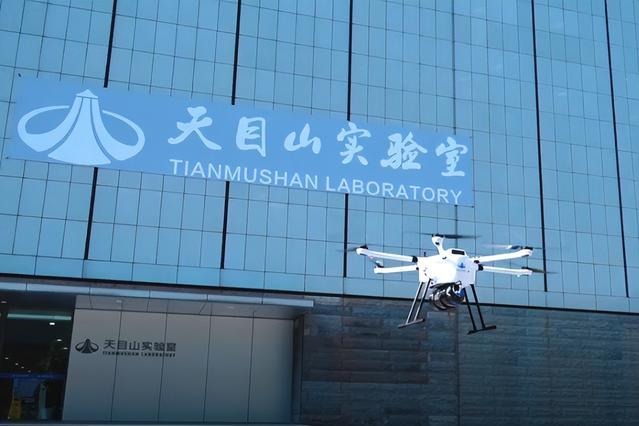Traditional Chinese culture celebrated in Aksu, Xinjiang

Aksu has made notable progress in promoting traditional Chinese culture in recent years. The prefecture in the Xinjiang Uygur autonomous region has introduced various initiatives for the construction of cultural venues, innovative people-centered activities, upgrading cultural industries and fostering cultural exchanges.
These efforts have infused a spiritual drive into Aksu's high-quality development, local officials said.
To build a comprehensive public cultural service system covering both urban and rural areas, the prefecture has completed the construction of 15 "urban studies" spaces, 169 new era civilization practice stations and 117 rural comprehensive cultural service centers.
Additionally, the Aksu Traditional Chinese Culture Academy, which houses 14,000 books, exemplifies the region's commitment to preserving and promoting traditional cultural heritage.
For example, a cultural experience activity centered around Major Heat, or da shu, a traditional Chinese solar term, was held at the academy on July 22. This event combined the essence of traditional culture with unique Silk Road heritage.
During the activity, folk-custom teachers explained the origin of da shu, while Chinese medicine experts shared health advice from ancient medical books, such as drinking ginger tea during the dog days of summer to counter cold ailments and having three-bean soup to alleviate the summer heat.
A participant surnamed Zhang expressed surprise at the depth of wisdom regarding life and health within solar terms.
The "urban studies" spaces in Aksu, with warm lighting, well-organized bookshelves and cozy desks, have become a top choice for citizens to read and relax. Also, in Yiganqi town, resources from local cultural and service centers have been integrated to create an institute and 22 practice stations promoting new era civilization. The venues offer courses on traditional arts like calligraphy, painting, tea art and paper-cutting, enriching residents' cultural life.
Innovative activities
Aksu has prioritized cultural innovation by organizing a diverse range of events at city, town and village levels based on the principle of meeting community demand.
These events include art performances, sports competitions, calligraphy exhibitions and displays of intangible cultural heritage. Moreover, the prefecture has offered an average of more than 70 training sessions and exhibitions annually, which have benefited over 100,000 people.
On the evening of July 16, the program tour of the first China Xinjiang Folk Art Season was held at the Old Street's bustling night market in Aksu, delivering a cultural feast to residents and tourists.
The performance showcased a blend of local masterpieces and distinctive shows from Turpan, Korla and Altay, offering folk songs and the playing of the dombra, a traditional Kazak musical instrument. Cultures from different regions shone on the same stage, reflecting the diverse cultural landscape of Xinjiang.
By leveraging its rich culture, Aksu has developed various tourism formats that integrate culture and industry. The Old Street, for instance, regularly stages local intangible cultural heritage shows, leading to a substantial increase in tourist numbers. Also, it has developed four high-quality tourist routes to drive economic growth.
In the first half of 2025, Aksu welcomed more than 4.78 million tourists, with tourism revenue increasing by 21.08 percent year-on-year. The cultural and tourism industry has become a new driver for high-quality economic development in the region.
Focusing on long-term development, Aksu follows a planning first and project-driven approach. Positioned as a "cultural and tourism distribution center in southern Xinjiang", the prefecture has secured dedicated funds, crafted a course of action for the cultural and tourism industry during the 15th Five-Year Plan (2026-30), and established a development framework that includes cultural landmarks, distinctive streets and top-tier travel routes.
Key projects — including the cultural center, national fitness center and intangible cultural heritage museum — are making steady progress in Aksu. The prefecture has allocated 17.9 million yuan ($2.5 million) in special funds to enhance tourism infrastructure, upgrade supporting facilities on Old Street and improve urban and rural sports amenities.
To boost tourism, Aksu has organized 40 events, including lantern fairs and intangible cultural heritage exhibitions, resulting in a consumption boost of around 171 million yuan. It has also cultivated signature events like the Taklimakan Rally, round-lake cycling and dragon boat races, collectively attracting nearly 1 million spectators and driving up catering and accommodation consumption along the routes by approximately 30 percent.
Cultural exchanges
Aksu has strengthened cultural communication by collaborating with other regions including Hangzhou in Zhejiang province. It has organized writers and artists to give on-site training in Hangzhou, and the two areas have co-hosted public welfare training sessions and exhibitions of calligraphy, painting and photography.
Recently, a study trip for Hangzhou's online writers to Aksu was launched. Over seven days, the group visited Aksu's historical and cultural sites, interacting with people from diverse ethnic groups.
"The customs and traditions of Aksu offer abundant inspiration for creative endeavors. We look forward to strengthening mutual visits and learning between online writers from both places to ignite fresh creative sparks," said Wang Haiying, vice-chairman of the Hangzhou Online Writers Association.
Dong Sheng, deputy director of the publicity department of the Aksu government, said that the activity aims to improve the creative skills of local writers and artists and promote the coordinated development of cultural initiatives in both Hangzhou and Aksu.
Looking ahead, Aksu remains committed to leveraging its rich traditional Chinese culture as a foundation for building cultural brands and expanding access to cultural services for the benefit of its residents, according to the local government.



Today's Top News
- China remembers victims of Nanjing Massacre, 88 years on
- New plan will be a road map for a stronger future
- Taiwan's character of the year a vote against confrontation
- Strengthened resilience key for economy
- Video sheds new light on Japan's wartime atrocities
- Xi: World yearns for peace, trust more than ever






























